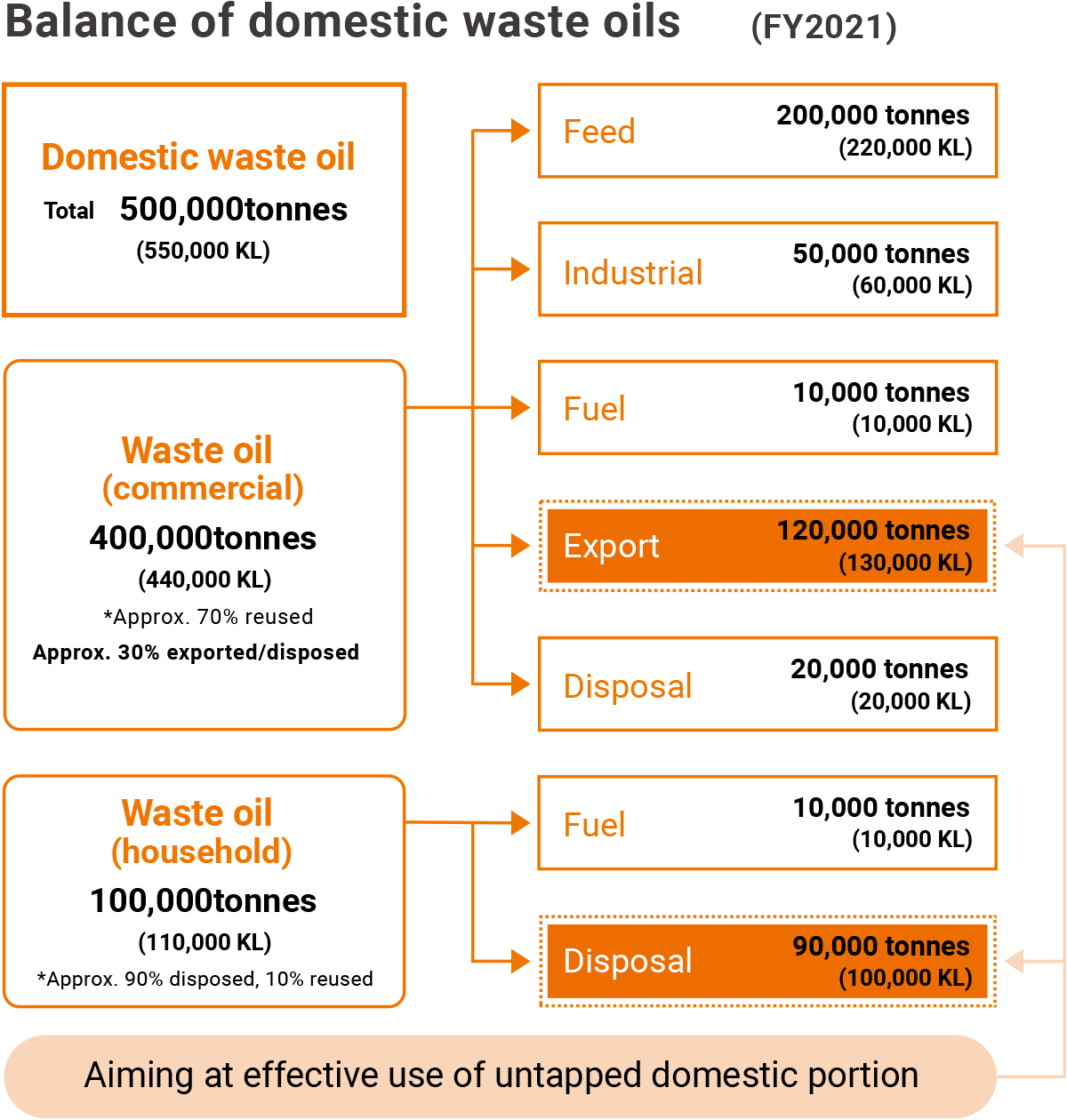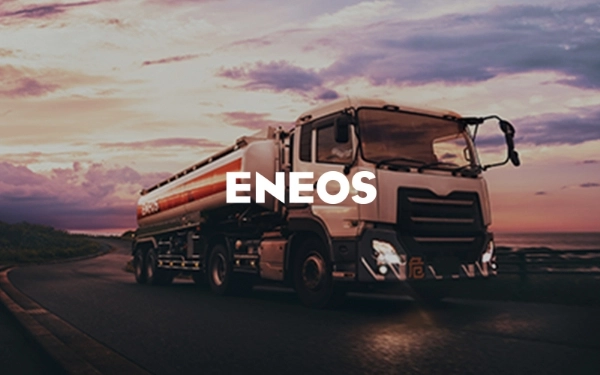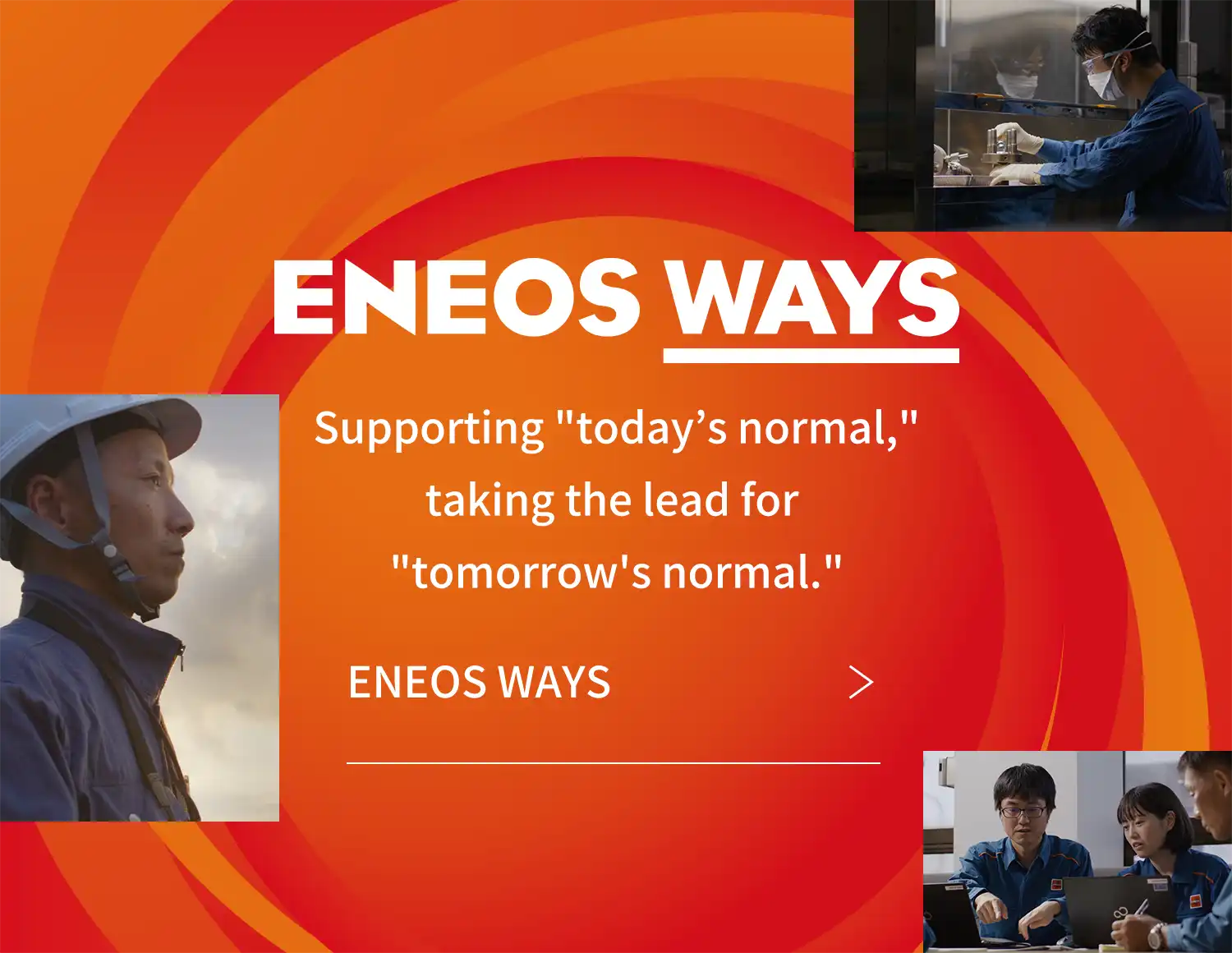Aiming to be the Biggest Supply System in Japan
SAF*1 refers to low-carbon, sustainable aviation fuels made from used cooking oil, biomass, and waste residues.
The aviation industry brought in CORSIA*2 to ensure GHG*3 emissions are not allowed to increase beyond their 2020 level. Then in October 2022, the International Civil Aviation Organization (ICAO) adopted the target of net zero GHG emissions by 2050, and from 2024 onwards, CORSIA has set the target to keep CO2 emissions below 85% of the baseline, which is defined as CO2 emissions in 2019. In Japan, it is anticipated that the target amount of SAF supply would be set by 2030 onwards, which is equivalent to 5% or more of the GHG emissions against conventional jet fuel produced and supplied domestically in FY2019.
Considering this movement, the ENEOS Group is committing ahead with importing SAF and quickly establishing a supply chain, and at the same time, working towards starting operation of Wakayama SAF refinery.
-
Sustainable Aviation Fuel
-
Carbon Offsetting and Reduction Scheme for International Aviation
-
Green House Gas
Business Policies
- Early construction of an importing supply chain.
- Construction of an in-house manufacturing system.
Wakayama SAF Refinery: 400,000 kL/year
Further refining facility: Under consideration
Main Initiatives
Construction of SAF import system and in-house manufacturing system
Firstly, the ENEOS Group is moving ahead with initiatives to produce SAF domestically and import it from overseas in order to ensure the stable supply of SAF.
As for SAF production, we aim to construct a mass production and supply system of 400,000 kL/year at Wakayama SAF Refinery. To that end, we are conducting a joint study with Mitsubishi Corporation. In addition, we also signed a memorandum of agreement with Ampol for joint studies in March 2023 to develop SAF manufacturing facilities in Australia.
Regarding imports from overseas, ENEOS is the first domestic refiners to have imported SAF molecules and started supplying SAF to more than ten airlines in 2024. In the medium to long term, we aim to develop next-generation SAF (synthetic fuels) by our own unique technologies and spread them to the society.
Effective Use of Used Cooking Oil
Waste oil from cooking, such as deep frying, comes to 500,000 tons annually when you combine commercial sources such as restaurants with the amount generated by households.
About 70% of commercial waste oil is used for livestock feed and so on, so ENEOS intends to respect current uses while utilizing the remaining approx. 30%, 120,000 tons annually, which is currently exported overseas, at our Wakayama Refinery. In addition, about 90% of the 100,000 tons generated by households is thrown away, so we are also considering a scheme to recover this amount.

Source: Partially our estimation based on data from Japan Federation of UC Oil Business Cooperative Associations (UCO Japan)
Related Information

Petroleum Products Business
Taking on the challenge of achieving both a stable supply of energy and materials and the realization of a carbon-neutral society.



